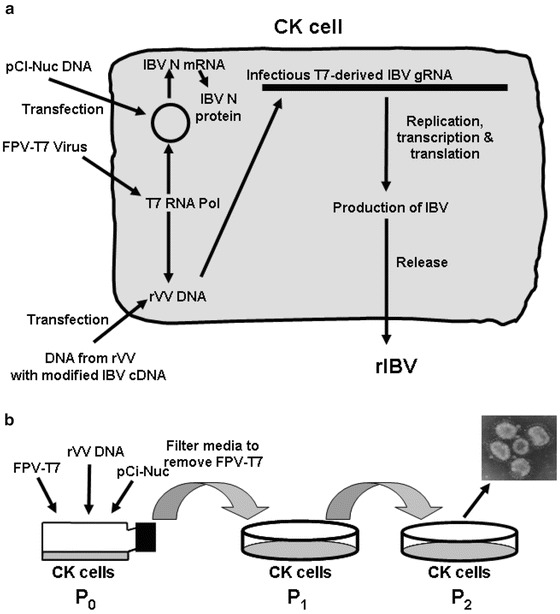Fig. 4.

A schematic representation of the recovery process for obtaining rIBV from DNA isolated from a recombinant vaccinia virus containing a full-length IBV cDNA under the control of a T7 promoter. (a) In addition to the vaccinia virus DNA containing the full-length IBV cDNA under the control of a T7 promoter a plasmid, pCI-Nuc, expressing the IBV nucleoprotein, required for successful rescue of IBV, is transfected into CK cells previously infected with a recombinant fowl pox virus, FPV-T7, expressing T7 RNA polymerase. The T7 RNA polymerase results in the synthesis of an infectious RNA from the vaccinia virus DNA that consequently leads to the generation of infectious IBV being released from the cell. (b) Any recovered rIBV present in the media of P0 CK cells is used to infect P1 CK cells. The media is filtered through a 0.22 μm filter to remove any FPV-T7 virus. IBV-induced CPE is normally observed in the P1 CK cells following a successful recovery experiment. Any rIBV is passaged a further two times, P2 and P3, in CK cells. Total RNA is extracted from the P1 to P3 CK cells and the IBV-derived RNA analyzed by RT-PCR for the presence of the required modification
